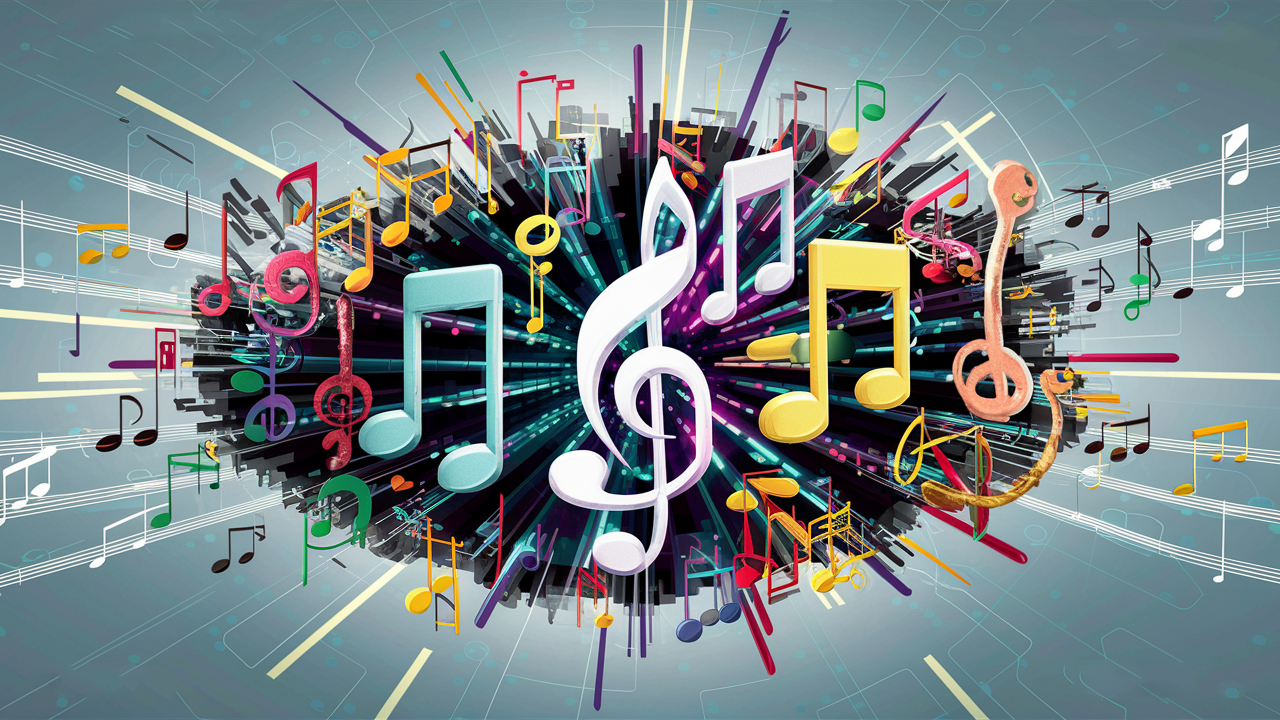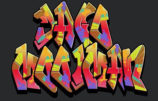
It’s not every blog that has it’s own theme song. And what this blog is about. AI music! And while we are at it, why not the lyrics and vocals as well. Yes you read right, all the music, lyrics and vocals on this blog has been created by AI, no human intervention required.
Press play below to listen to the theme song of this blog.
A while ago I wrote about AI generating images that is indistinguishable from real photos , now this time it’s music’s turn. I remember a year ago showing my partner AI generated music, that sounded well, horrible. I said give it a year and you won’t be able to tell the difference, and here we are. We now live in a world where anyone can now generate their own personalized music in a matter of seconds. This might be a lot to take in, especially if you are not involved in the AI field, but it’s true.
I’m no expert in any sense of the word when it comes to music, but this is my blog so here is some of my views on the matter.
In the world of music, AI is like that one friend who shows up with a synthesizer to a bonfire; you’re not sure how you feel about it, but the night gets interesting. AI’s role in music creation and composition is akin to tossing a handful of glitter into the air—you end up with something sparkly and unexpected. From algorithms that generate melodies to systems that understand and replicate classical compositions, AI is proving that creativity isn’t limited to humans. It’s like having Mozart in your laptop, minus the wig.
Gone are the days when making music required a studio, a small fortune, and possibly a deal with a shady manager named Vince. With AI, the gates to the music production kingdom are wide open. Now, anyone with a computer can produce music that sounds like it was made in a top-notch studio. It’s a win for bedroom musicians everywhere, transforming “I recorded this on my laptop” from a humblebrag to a legit claim to fame.
AI in music isn’t just about making things easier; it’s about pushing boundaries. Imagine genres that don’t exist yet, sounds no one has heard, and rhythms that defy logic. AI is the mad scientist of music, mixing elements nobody thought to mix, creating a musical Frankenstein that’s somehow beautiful. It’s like discovering a new color and immediately painting your house with it.
The economic implications of AI in music are as varied as a prog rock album. On one hand, it’s creating new opportunities for monetization and innovation, turning the industry on its head. On the other, it’s challenging traditional revenue models and making everyone question the value of music when a computer can compose a chart-topper. It’s the industry’s “cha-cha slide”—one step forward, two steps back.
Speaking of money, AI is rewriting the rulebook on how artists make a living. Streaming services, personalized concerts, and algorithmically generated music tailored to your mood are just the beginning. It’s like music got a job in tech and suddenly started making bank, opening up new avenues for artists to earn their bread and butter (or avocado toast, for the millennial musicians).
The age-old question: Will robots take our jobs, or will they usher in a new era of employment? In music, AI is doing a bit of both. While some fear the loss of traditional roles, others see a future teeming with new types of jobs—AI music trainers, digital sound curators, and more. It’s a career fair no one saw coming, with opportunities as diverse as a Spotify playlist.
Now, let’s talk ethics. AI-generated music raises questions faster than a guitarist shreds during a solo. Who owns a song composed by AI? How do we credit creativity when algorithms are involved? The legal landscape is as clear as mud, and we’re all waiting for someone to invent windshield wipers for the law. The way I see it, if you made it, you own it, but that is just my opinion on the matter.
Ownership issues are the soap opera of the music industry—dramatic and complicated. With AI, it’s even more convoluted. Is an AI-generated melody that sounds suspiciously like your favorite song a coincidence or copyright infringement? The lines are blurred, and not in a catchy Robin Thicke way.
In the AI music debate, authenticity is the hill many are willing to die on. Can music created by algorithms carry the same emotional weight as human-composed tunes? It’s a battle between Team Human Touch and Team Efficiency, with artistic integrity caught in the crossfire. Spoiler alert: the jury’s still out.
Music education is getting an AI overhaul. Traditional scales and arpeggios now share the curriculum with algorithmic composition and digital audio workshops. It’s like your music teacher just got an upgrade, and suddenly, practicing doesn’t seem so boring after all.
As AI reshapes music, the skillset of the modern musician is evolving. Being a virtuoso on your instrument is still cool, but now, so is coding your digital audio workstation. It’s a brave new world where musical talent meets technical prowess, and the coolest kids in band camp are the ones who can program.
The integration of AI into music education is like adding a synthesizer to the school orchestra—it’s unexpected but surprisingly harmonious. From tools that provide instant feedback to systems that customize learning paths, AI is the new assistant teacher, minus the coffee breath.
The future of AI in music is as unpredictable as a live jazz performance. Will AI become the new norm, or will there be a backlash in favor of pure human artistry? Whatever happens, one thing’s for sure: the music industry is in for a wild rude.
That being said I decided to do a little experiment of my own. Going back to my Afrikaans heritage I decided to see if I can recreate an transitional pop Afrikaans song similar to what is currently made by very talented artists. I started by downloading about 50 of the most popular Afrikaans modern music’s lyrics and feeding that to an AI or LLM (Large Language Model). I told it to learn the way the songs is structured and then try and write a couple of new Afrikaans songs. It turns out some modern Afrikaans music has a lot of profanity in it and I did get flagged a couple of times by the AI because of it. But after a few tries I managed to get new lyrics written and processed into a new song. Below is a couple songs for your listening pressure, especially if you love Afrikaans music. It was interesting to note about half of the song I generated had a Nederland’s accent to it, instead of the local Afrikaans one. You can still pick up a word here and there pronounced not quite right.
All the lyrics, music, vocals, and even the background images where created by AI, no humans where harmed.., I mean involved in the making of these songs.


Here is another version of the same song

Below is two additional versions of the same song:
And just to show that one can truly make any music you can think of I decided to take the classic “Happy Birthday” song and make three different version of it, each in a different style of music. All I had to do is change the description of the music I wanted and keep the lyrics the same.
R&B Version
Heavy Metal
70’s Music Version
And just when you think it’s over, why not have Frank Sinatra sing a version of Basket Case by Green day.
Here is the Original song just incase you have never heard it before.
Or how about Johnny Cash Singing Barbie Girl and other popular songs? The possibilities are truly endless!
And now to end this blog, just for fun, here is an opera singer complains about his mismatching socks!
